


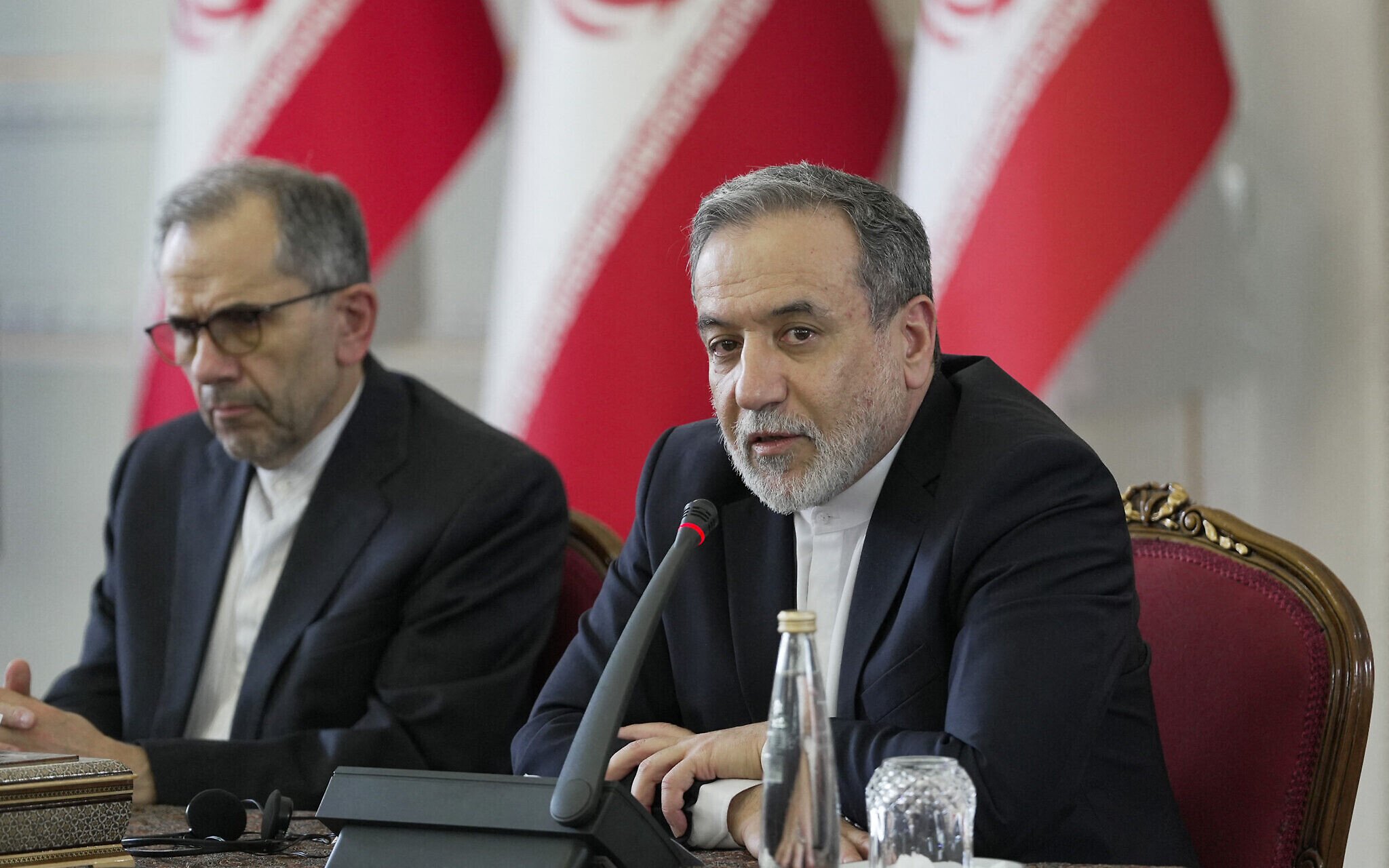
Britain, France and Germany are likely to begin the process of reimposing UN sanctions on Iran on Thursday, four diplomats said, adding that they hope Tehran will persuade them to defer the penalties by providing commitments over its nuclear program within 30 days.
The trio of countries, known as the E3, met with Iranian officials on Tuesday to try to revive diplomacy over its nuclear program. Looming before them is the expiration of a 2015 agreement that curbed Iran’s nuclear enrichment in exchange for sanctions relief. Under the terms of that deal, the European countries have until mid-October to restore sanctions on Tehran via a so-called “snapback” mechanism.
Three European diplomats and a Western diplomat said Tuesday’s talks did not yield sufficiently tangible commitments from Iran to forestall that, though they believed there was room for further diplomacy in the coming weeks.
In the meantime, they said the E3 had decided to start triggering the so-called snapback of the UN sanctions, possibly as early as Thursday, over accusations that Iran violated the 2015 deal, which aimed to prevent Tehran from developing a nuclear weapon.
On Wednesday, US Secretary of State Marco Rubio had a phone call with the foreign ministers of the three European countries in which, a US spokesperson said in a statement, “all reiterated their commitment to ensuring that Iran never develops or obtains a nuclear weapon.”
The diplomacy is taking place as UN inspections of Iran’s nuclear sites have resumed following its recent war with Israel, and as Iran forcefully rejects the idea of resumed sanctions. The head of the UN’s atomic energy agency has begun receiving police protection amid the tense atmosphere.
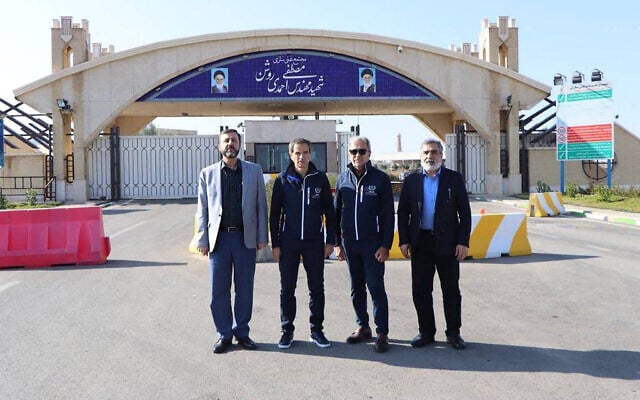
Tehran has consistently denied seeking to acquire nuclear weapons. However, it enriched uranium to levels that have no peaceful application, obstructed international inspectors from checking its nuclear facilities, and expanded its ballistic missile capabilities.
In June, Israel said Iran had recently taken steps toward weaponization, part of what motivated Israel’s sweeping assault on Iran’s top military leaders, nuclear scientists, uranium enrichment sites and ballistic missile program in a 12-day war. Israel said the attack, which was later joined by the United States, was necessary to prevent the Islamic Republic from realizing its avowed plan to destroy the Jewish state.
Following the 12-day war, questions remain over the status of Iran’s stockpile of highly enriched uranium, which could be enough for several atomic bombs if Tehran chooses to build them.
Since then, the E3 have engaged with Iran to resolve the outstanding issues. The trio has offered to delay the snapback for as much as six months to enable serious negotiations if Iran allows full UN inspections of its remaining nuclear facilities, and engages in talks with the United States, which pulled out of the 2015 deal in 2018.
Iran’s supreme leader recently called tensions with the US “unsolvable,” though one diplomat said Iran had shown signs of readiness to resume negotiations with the US in Tuesday’s meeting with the E3. An Iranian source said it would only do so “if Washington guarantees there will be no (military) strikes during the talks.”
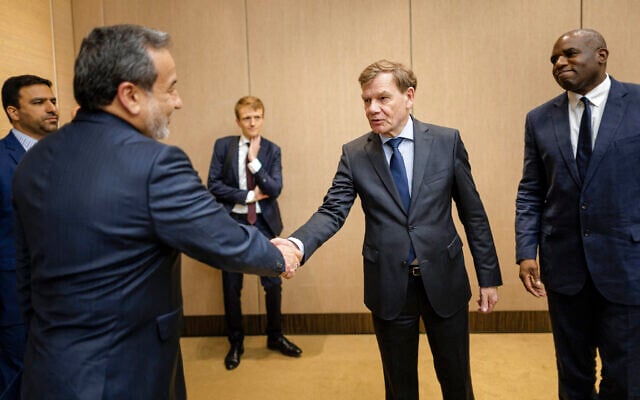
If UN sanctions are reinstated, the process would take 30 days. The sanctions would cover Iran’s financial, banking, hydrocarbons and defense sectors.
“The real negotiations will start once the letter (to the UN Security Council) is submitted,” a Western diplomat said, speaking on condition of anonymity.
A German foreign ministry spokesperson said triggering the snapback remained an option for the E3. The British and French foreign ministries did not immediately respond to requests for comment.
Tehran has warned of a “harsh response” if sanctions are reinstated. It has said it is working with its allies, China and Russia, which are also parties to the 2015 deal, to prevent the reimposition of sanctions.
Kazem Gharibabadi, Iran’s deputy foreign minister for legal and international affairs, said on X after the meeting with the Europeans that Tehran “remains committed to diplomacy″ and that it was “high time” for the European countries “to make the right choice, and give diplomacy time and space.”
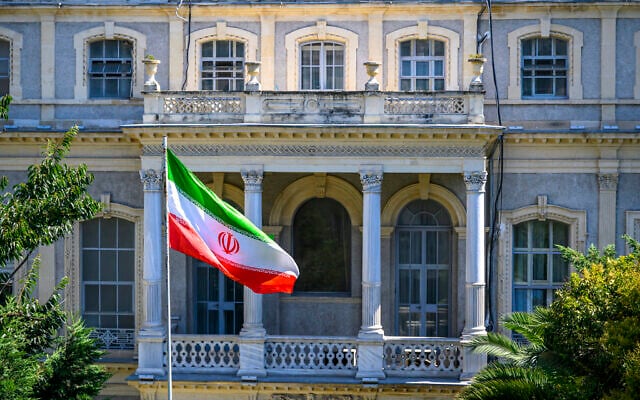
Inspections, however, may have resumed, as this week, a team of inspectors from the International Atomic Energy Agency returned to Iran, its director general, Rafael Grossi, said. The team is the first to enter the country since Tehran formally suspended cooperation with the agency last month in the wake of the war.
But there was no agreement on what the inspectors would actually be allowed to do there or whether they would have access to nuclear facilities. Iran said the inspectors’ visit did not represent a full resumption of cooperation.
“No final text has yet been approved on the new cooperation framework with the IAEA, and views are being exchanged,” Iranian Foreign Minister Abbas Araghchi said, quoted by state television.
Under the law that suspended cooperation, inspectors may access Iranian nuclear sites only with the approval of the country’s top security body, the Supreme National Security Council.
Tehran has said repeatedly that future cooperation with the agency will take “a new form.” The spokesman for Iran’s Atomic Energy Organization, Behrouz Kamalvandi, said the IAEA inspectors would oversee the replacement of fuel at the Bushehr nuclear power plant in southwestern Iran.
He made no mention of whether inspectors would be allowed access to other sites, including Fordo and Natanz, which were hit during the war.
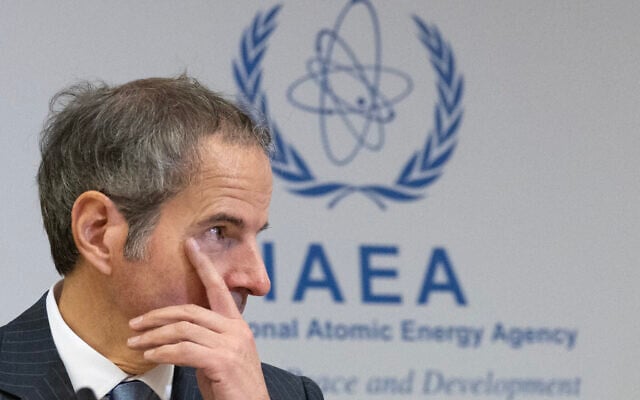
Grossi, meanwhile, is receiving special police protection from Austria following a threat, the IAEA acknowledged Wednesday. Grossi, who plans to run for United Nations secretary-general, is being protected by an Austrian police Cobra unit.
The elite unit under the Austrian Federal Ministry of the Interior mainly handles counterterrorism operations, hostage rescues and responses to mass shootings. It also engages in personal protection and the protection of Austrian foreign representations abroad. In Austria, Cobra operatives are known for protecting the president and chancellor as well as the US and Israeli ambassadors.
“We can confirm that Austria provided a Cobra unit, but we cannot confirm where the specific threat came from,” IAEA spokesman Fredrik Dahl said.
